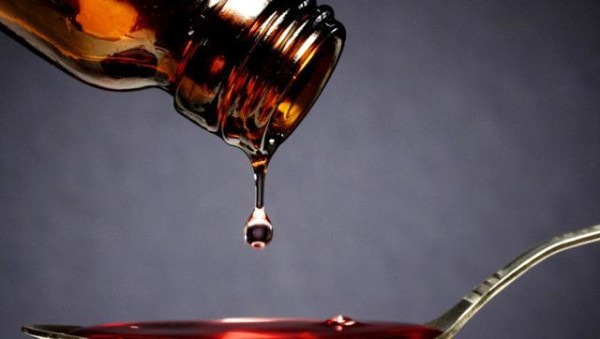If you’re planning to buy a cough syrup for your child, think again.
Medicines with codeine – a chemical derived from opium — are banned for children below 12 in many countries but are freely available in India as popular cough syrups – such as Corex, Phensedyl, Benadryl and Teddy cough.
In 2013, the United States, United Kingdom, European Union, Canada, Australia and New Zealand banned codeine-based medicines for children under 12 and new mothers after a safety review found serious side effects in children, including fainting, seizures and death.
But most codeine-containing cough syrup brands do not even carry a label that warns of the potential side effects of the chemical on children and breastfeeding women.
Codeine is known to cause opioid poisoning in children and adults with high metabolic rates, say experts.
“It would have been ethical for pharma companies to approach the Drug Controller General of India in 2013 after the global discovery of serious side effects. They should have also pulled out of the market then,” said Dr CM Gulhati, editor, Monthly Index of Medical Specialities (MIMS).
“I am intrigued to know on what basis they are defending its use.”
Codeine-based cough syrups are among the 344 fixed-dose combinations (FDCs) banned by India in February, a move that highlighted how lax regulations led to the circulation of harmful drugs.
India is one of the world’s largest markets for medicine but has notoriously poor implementation of regulations that let hundreds of drugs that are banned in the US or Europe slip through the monitoring process. In many cases, guidelines are vague or non-existent, and are inconsistently applied by central and state agencies.
“The FDC of codeine with chlorpheniramine was approved within 24 hours by the then drugs controller on March 10, 1995, without any tests for safety and efficacy that are mandatory under the laws,” said Dr Gulhati.
The ban on FDCs was challenged by pharma companies in the Delhi high court that observed India was a dumping ground for medicines labelled unsafe for use in developed countries.
But drug companies say they followed all existing regulations and couldn’t be faulted as India doesn’t ban codeine-based medicines.
“In India, our product is a prescription medicine that is approved for prescription to patients (adults and children) depending on their clinical condition,” said a company spokesperson for Pfizer, the manufacturer of Corex.
“Corex has a well-established efficacy and safety profile in India for more than 30 years and has both Central and State licenses and approvals.”
Abbott, said, “Phensedyl received DCGI approval in 1995 and has been on the market in India since the 1980s. Phensedyl is a prescription product. Phensedyl’s bottle label is in line with the Indian regulations.”






Leave a reply